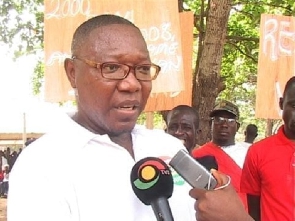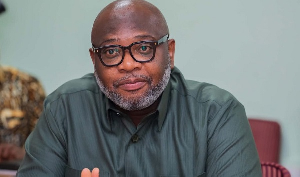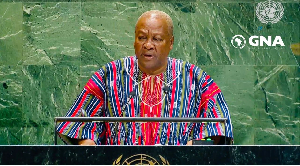Member of Parliament for Builsa South and Deputy Ranking member of Parliament’s Committee on Education, D, has the board of Achimota school rushed in their initial response to the court order given to the school to admit the two Rasta students.
Dr. Apaak posited that he championed the cause of the parents to seek redress in the court because he thought that the banter between parents/students and Achimota was not going anywhere, hence it was better to go to court to seek redress from the law on the matter.
He said this in an interview with Berla Mundi on the New Day show on TV3, Thursday, June 3.
He was speaking on the back of the judgement by the Human Rights court in the case brought against Achimota school by the two Rastafarian students who were denied entry into the school. And on Monday, May 31, the court ruled on behalf of the students that the school cannot deny them entry based on their religious faith.
The board advised its legal counsel to withdraw the application on the stay of execution as regards the judgement in the case involving the admission of two Rastafarian students.
After Monday’s judgement by the Human Rights Division of the Accra High Court, the board issued a statement to indicate its dissent to the judgement by Gifty Agyei Addo.
It consequently announced an application to appeal the judgement.
But on Wednesday, June 2, the board in another statement says it will allow the execution of the judgement to happen as it pursues the appeal at a higher court.
“While the Board remains committed to the appeal against the High Court ruling, it will withdraw the application for a stay of execution pending the determination of the appeal by a higher court,” the latest statement from the governing board of the school said.
Commenting on this, Dr. Apaak said “In the wake of this issue, many of us made our opinion known, I remember at the time we had a meeting and it came up but at the same time we saw that the minister had started taking some steps. But I think the issue started gaining more national attention when Achimota sort of defied the minister’s earlier directive that the students ought to take their place in Achimota.
And later on we heard that the parents had decided that they were going to seek redress in court. In fact, I championed that proposition because I thought that the banter between the parents/students on side and Achimota was not going to get anywhere, therefore it was better to go to court to seek redress so that we would know whether the right to education, which is a fundamental right and the one to profess your faith, another fundamental right would stand higher than the right of an institution to put in place rules and regulations to govern the conducts, appearance and behavior of persons who are within that institution” he said.
He added “But honestly I was not surprised with the reasons the judge gave because truly I can’t see how wearing dreadlocks can impinge on one’s ability to engage in academic activities and there is no correlation between hygiene and wearing dreadlocks. I know people who wear dreadlocks who practice better hygiene than those of us who don’t wear dreadlocks.
The state clearly has failed to make a case as to why these students should not take their rightful place in Achimota but I thought it was a bit of a rush that when the pronouncement was made, the board of Achimota decided to initiate an appeal. It is a public institution, you don’t have the leverage as though you were a private entity, there are structures, the minister is there, the GES is there and it’s because you are a public institution that gave locus to the Attorney General’s department to represent you in court.
“So if you have gone and the verdict is not palatable, what you do is to go back to your superiors because there is a structure. So let them know that this has been the outcome and then perhaps they will guide you and give you advice on what to do. I think the board rushed. If you want my honest opinion, I will say that the verdict should be adapted.
What we need to do as a nation, and as a committee we have been discussing with the minister, is to look at coming out with a uniform code of conduct, taking care of some of these fundamental rights because there are certain things that cannot stand in the modern era. You simply cannot say a student cannot go to school because he is wearing dreadlocks, she shouldn’t go to school because she is wearing a hijab. Our society is changing, rules of engagements must also adjust, I’m not saying that maintaining tradition is not a good thing but tradition itself must adjust to changing times”.
General News of Thursday, 3 June 2021
Source: 3news.com













